Social-emotional learning is the range of emotional, behavioral, and social effects produced by a program or intervention.
Conversations with parents about YouTube: What are kids watching, and what are they learning?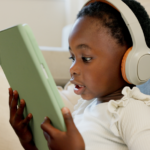
Toddlers and preschoolers today are spending more time watching videos on online streaming services like YouTube than in any other format.
Continue reading →BEST in CLASS: What Coaches and Teachers Say About It. Part 1: Coach Perspectives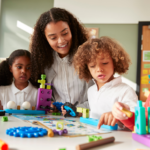
BEST in CLASS (Behavioral, Emotional, and Social Training: Competent Learners Achieving School Success) is a tier 2 (targeted) evidence-based intervention for young children with persistent and intensive challenging behaviors.
Continue reading →Supporting Students with Behavioral and Emotional Needs: A Conversation with Carl Sumi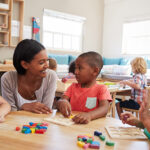
In the latest episode of The SRI Homeroom podcast, Senior Principal Education Researcher Carl Sumi joined host Kori Hamilton Biagas to discuss strategies, interventions, and recommendations for educators, schools, and researchers hoping to meet that need head-on.
Continue reading →BEST in CLASS: What Coaches and Teachers Say About It. Part 2: Teacher Perspectives
Practice-based coaching (PBC) promotes a strong collaborative partnership between teachers and coaches to facilitate the use of effective instructional practices. The PBC process includes skills instruction on BEST in CLASS practices, shared goals and action planning, implementation support, classroom observation, and reflection and feedback.
Continue reading →Which Kindergarteners are at Risk of Being Bullied and/or Becoming Bullies, and What Can Educators and Parents Do About It?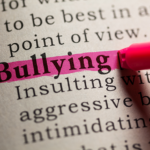
Bullying occurs when children experience unwanted and aggressive behavior from more powerful peers repeatedly over time.
Continue reading →Top 5 Myths About SEL and Exclusionary Discipline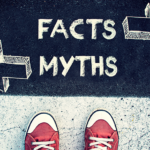
CASEL defines social-emotional learning (SEL) as “…the process through which young people and adults acquire and apply the knowledge, skills, and attitudes that help us to understand ourselves, connect with others, achieve our goals and support our communities”.
Continue reading →Effectiveness of Tools for Getting Along: Teaching Students Problem-Solving Skills
(NASP 2022) This presentation described results from an effectiveness study of the Tools for (NASP 2022) Getting Along (TFGA) social problem-solving program. Findings show robust positive effects of TFGA on social–emotional and behavioral outcomes of Grade 4 students in geographically and demographically diverse areas.
Continue reading →Practice-Based Coaching on the Pyramid Model: “It builds you up and finds your strengths”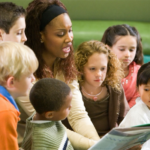
SRI Education researchers are conducting an evaluation of the Pyramid Model, a three-tiered framework that supports early childhood education (ECE) teachers in preschool classrooms. The main goals of the Pyramid Model are to support ECE teachers as key figures in promoting the social-emotional skills and competence of children with and ...
Continue reading →Reflecting on a year of distance learning as teachers plan for school reopening
After over a full year of school closures, several teachers and school administrators are busy preparing for the long-awaited return to in-person classes this fall. But while worries of student learning-loss, momentum, and social-emotional well-being remain at the forefront of parent and school administrators’ concerns, the significant impact that this ...
Continue reading →Social-Emotional Learning Program Study: Tools for Getting Along
After a turbulent 2020-2021 school year, it is more important than ever that educators have feasible and effective options to support students’ foundational social-emotional skills. Prior studies have found that students who participate in social-emotional learning (SEL) programs improve their behavioral and academic functioning and reduce their challenging behaviors.1 When ...
Continue reading →









